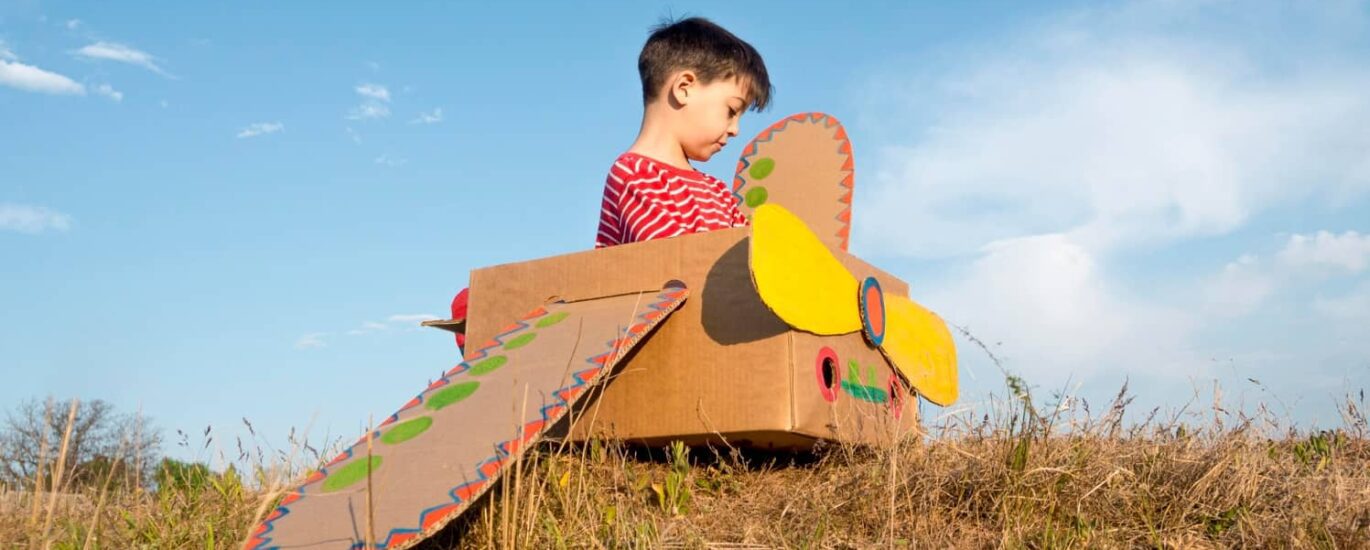The summer break presents a fantastic opportunity for children to engage in fun activities that also promote learning and skill development. As a parent, you can make the most of this time by providing your kids with a wide range of summer learning activities that are not only enjoyable but also help them grow academically and creatively. In this blog post, we will explore a variety of summer learning activities that will keep your kids engaged, stimulated, and excited about learning during their break.
1. Outdoor Exploration and Nature Activities
Summer is the perfect time to encourage your kids to connect with nature and explore the great outdoors. Take them on nature hikes, camping trips, or visits to local parks. Encourage them to observe and identify different plants, insects, and animals. This hands-on experience fosters their curiosity and appreciation for the natural world around them.

Outdoor exploration and nature activities encompass a wide range of experiences, including these Summer Learning Activities:
- Hiking and Trekking: Walking or climbing through natural trails and paths to explore different terrains, enjoy scenic views, and discover hidden gems in nature.
- Camping: Spending a night or multiple nights outdoors, usually in a tent, to experience the beauty of nature, starry skies, and the tranquility of sleeping under the open sky.
- Nature Walks and Guided Tours: Leisurely strolls or guided tours in nature parks, botanical gardens, or wildlife reserves, with a focus on observing and learning about the flora, fauna, and ecological systems.
- Wildlife Observation: Actively observing and studying various wildlife species, such as birds, insects, mammals, and reptiles, in their natural habitats.
- Nature Photography: Capturing the beauty and essence of the natural world through photography, highlighting landscapes, animals, plants, and other natural elements.
- Nature Journaling: Recording observations, thoughts, and reflections about the natural environment in a journal, combining writing, drawing, and sketches.
- Geocaching: Engaging in a treasure hunt-like activity using GPS devices or smartphone apps to locate hidden containers, or “geocaches,” placed in outdoor locations worldwide.
- Nature Scavenger Hunts: Organizing or participating in scavenger hunts that involve finding and identifying specific natural objects, such as leaves, rocks, flowers, or animal tracks.
- Birdwatching: Focusing on observing and identifying different bird species, their behaviors, and habitats, often with the aid of binoculars and field guides.
Rock Climbing and Bouldering: Scaling rocks or large boulders using climbing techniques, requiring physical strength, agility, and problem-solving skills. These Summer Learning Activities promote a deeper connection with nature, encourage a sense of wonder and curiosity, and provide opportunities for learning about the environment, biodiversity, conservation, and the interdependencies of living organisms. They also offer numerous physical and mental health benefits, including stress reduction, improved fitness, enhanced problem-solving abilities, and a greater appreciation for the natural world.
Also Read:- How to Prevent Summer Learning Loss: 7 Strategies for a Productive Break
2. Science Experiments and STEM Projects
Science experiments and STEM (Science, Technology, Engineering, and Mathematics) projects are not only educational but also incredibly enjoyable for kids. You can set up simple experiments at home using everyday items, such as creating a homemade volcano or conducting a water density experiment. Additionally, there are numerous online resources and kits available that offer step-by-step instructions for exciting STEM projects tailored to different age groups and interests.

3. Reading and Writing Adventures
Reading and writing are fundamental skills that should be nurtured during the summer break. Encourage your kids to read books that align with their interests and reading levels. Set aside dedicated reading time each day and create a cozy reading corner in your home. Furthermore, inspire them to write stories, keep a journal, or even start a blog to enhance their creativity, vocabulary, and writing skills.

4. Arts and Crafts Exploration
Engaging in arts and crafts activities allows children to explore their creativity while developing fine motor skills and problem-solving abilities. Provide them with a variety of art supplies like paints, markers, colored pencils, and clay. Encourage them to create artwork, experiment with different techniques, or participate in online art classes. These activities help foster self-expression, imagination, and artistic development.

5. Culinary Adventures in the Kitchen
Cooking and baking are not only enjoyable Summer Learning Activities but also provide valuable opportunities for learning. Involve your children in meal planning and preparation, allowing them to measure ingredients, follow recipes, and learn about nutrition. Encourage them to try new recipes, experiment with flavors, and even grow their own herbs or vegetables. Cooking teaches valuable life skills, promotes healthy eating habits, and enhances their understanding of math and science.

6. Virtual Field Trips and Educational Apps
While physical travel may be limited, virtual field trips and educational apps offer a virtual exploration of different places and subjects. Many museums, zoos, and historical sites provide virtual tours and educational resources online. Additionally, there are educational apps and websites that offer interactive learning experiences, including educational games, quizzes, and puzzles covering various subjects. These resources make learning entertaining and accessible from the comfort of your home.

7. Coding and Technology Skills
Introducing your children to coding and technology early on can provide them with valuable skills for the future. There are numerous coding platforms and online resources designed specifically for kids, offering engaging lessons and games that teach coding concepts in a fun and interactive way. Learning to code enhances problem-solving skills, logical thinking, and creativity while preparing them for potential careers in technology.

8. Sports and Physical Activities
Summer is a great time for kids to engage in sports and physical activities that promote physical fitness and teamwork. Encourage them to participate in sports camps, swimming lessons, or join local community sports teams. Physical activities not only improve their overall health but also teach important values such as discipline, resilience, and sportsmanship.

9. Music and Dance Exploration
Encourage your children to explore the world of music and dance during the summer break. Provide them with musical instruments or enroll them in virtual music lessons. They can learn to play an instrument, sing, or even form a family band. Dancing is also a wonderful way for kids to express themselves and stay active. Encourage them to participate in virtual dance classes or create their own dance routines at home. Music and dance enhance coordination, creativity, and self-confidence.

10. Language Learning and Cultural Activities
Summer offers an excellent opportunity for kids to learn a new language or deepen their understanding of different cultures. Encourage them to explore online language learning platforms or enroll them in language classes. You can also introduce them to the cuisine, traditions, and celebrations of different cultures through cooking international recipes, watching documentaries, or celebrating cultural festivals. Learning about other languages and cultures broadens their perspective and promotes global awareness.

11. Gardening and Plant Care
Teach your kids the wonders of nature and the importance of environmental stewardship through gardening. Start a small garden in your backyard or use pots on your balcony or windowsill. Involve your children in planting seeds, watering plants, and observing their growth. This hands-on experience teaches them about plant life cycles, the importance of sunlight and water, and the impact of caring for living things. Gardening also instills responsibility and patience in kids as they nurture their plants.

12. Volunteering and Community Service
Summer is an ideal time to instill a sense of social responsibility and empathy in your children. Look for local volunteer opportunities or community service projects that align with their interests and values. They can participate in beach cleanups, food drives, animal shelter visits, or assist in community gardens. Volunteering teaches kids the importance of giving back, compassion, and working together to make a positive impact on society.

13. Problem-Solving Games and Puzzles
Challenge your kids’ problem-solving and critical thinking skills through engaging games and puzzles. Activities like sudoku, crossword puzzles, riddles, and board games not only provide entertainment but also develop their logical reasoning, strategic thinking, and decision-making abilities. Set aside regular family game nights or encourage friendly competitions among siblings or friends. These activities promote healthy competition, teamwork, and perseverance.

14. Financial Literacy and Entrepreneurship
Summer can be an excellent time to introduce basic financial concepts and entrepreneurship to your children. Teach them about money management, budgeting, and saving. Encourage them to set up a lemonade stand, create handmade crafts to sell, or start a small business online. This experience helps them understand the value of money, develop entrepreneurial skills, and cultivate a strong work ethic.

Conclusion
With the right mix of activities, summer can become a time of incredible growth and development for your kids. By incorporating outdoor exploration, science experiments, reading and writing adventures, arts and crafts, culinary experiences, virtual field trips, coding, and sports, you can create a summer filled with fun and enriching learning opportunities.
These activities not only keep your kids engaged and entertained but also promote intellectual, physical, and emotional development. Embrace the summer season as a time to inspire curiosity, foster creativity, and provide your children with the tools they need to succeed in both academic and personal endeavors.













